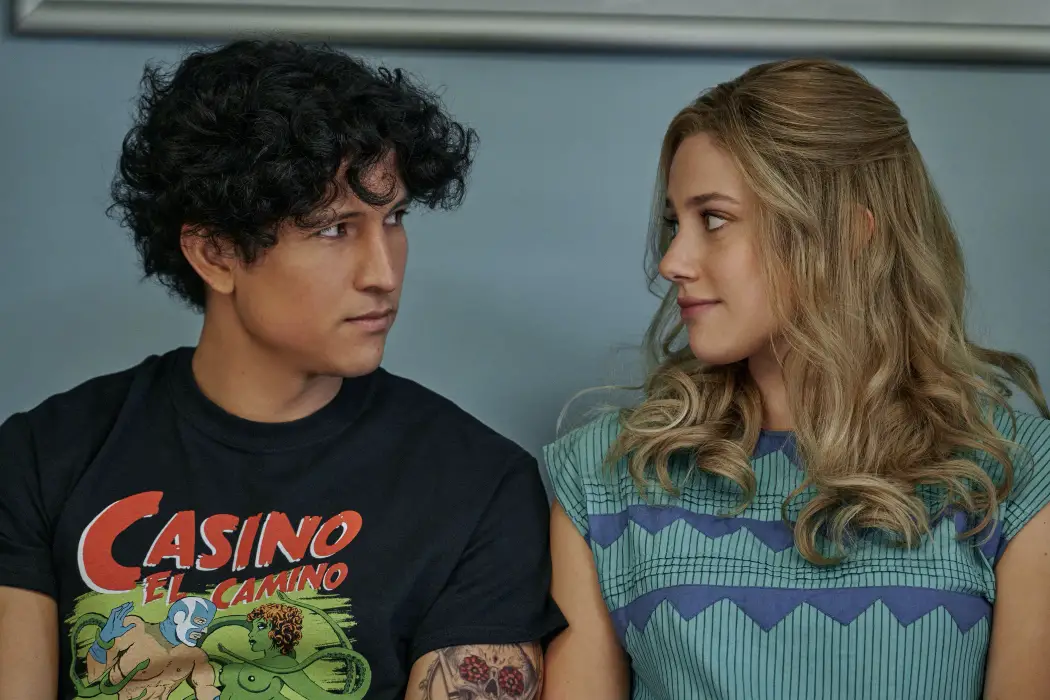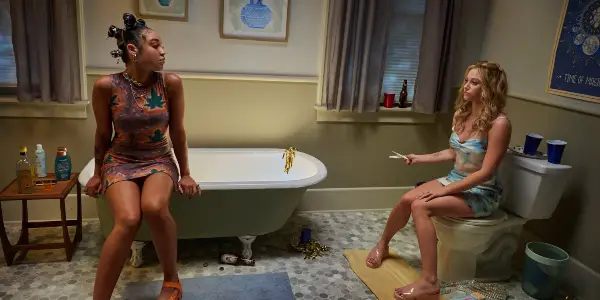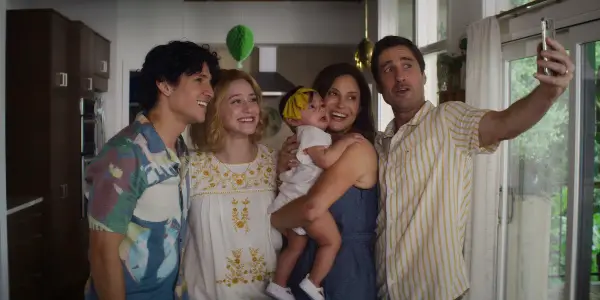LOOK BOTH WAYS: A Pleasant Surprise

Stephanie Archer is 39 year old film fanatic living in…
When Netflix announced the release of Wanuri Kahiu’s Look Both Ways, it became an instant drawback to the 1998 hit indie feature Sliding Doors. With the subsequent release of both the trailer and poster, Look Both Ways looked more and more to be an update on the endearing classic. A woman whose life is split in two by diverging consequences. Yet, where Sliding Doors found its division in the innocuous arrival of a train, Look Both Ways finds it in the results of a pregnancy test.
And while Look Both Ways retains a ruminating feeling of the late 90s film, it develops its own identity along the way, infusing humor and the modern age to craft an endearing tale all its own.
Splitting the Outcome
Where Sliding Doors welcomes its viewers with a soundtrack-partnered montage, Look Both Ways immediately introduces viewers to Natalie (Lili Reinhart). The ambitious and studious soon-to-be graduate has a five-year plan and a sure-fire way of achieving her dreams. When her close friend Gabe (Danny Ramirez), equally artistic and ambitious, announces his band’s latest success, coupled by the euphoric nature of graduation and the future, he and Nat engage in a one-night stand. And while they promise to not let it change anything between them, sometimes life does not always go to plan.

Moments later, we are reintroduced to Gabe and Natalie, Gabe rocking out at the graduation bash on campus, while Natalie nurses an upset stomach upstairs. As her friend Cara (Aisha Dee) arrives, the moment of truth of whether her illness is caused by gas station sushi or pregnancy is finally realized. Splitting from its predecessor, Look Both Ways refuses to embrace the traditional idea of a rewind moment – previous scenes replayed but with a different outcome. Rather, tracking shots take characters on and off screen, allowing the transitions between the split to flow both fluidly and cohesively, and even at times, merge. And as time progresses, this split changes the concrete idea of someone being this person or that, rather unifying both sides as just two equally possible outcomes for a person.
A Moment
From the very beginning of the film, the idea of a “moment” is constantly crafted for its audience. While it begins as dialogue – Gabe and Nat talking about a present moment and a future moment – dialogue evolves into literal moments, both big and small. And while Look Both Ways captures the idea of a moment that can forever alter your life, it also embraces the idea of capturing the moment – and sometimes even losing it.

That it is not just a decision within a single moment that decides the outcome of one’s life and ambitions. Looking Both Ways harnesses the observational prowess to capture Nat identifying and seizing opportunities as they come. She also does not stay down for long. No matter what “moment” comes, Nat is prepared to tackle it and push forward to the next one. Yet, Look Both Ways has a deeper awareness of the recognition to those moments we recognize as lost – and even at times those we don’t see.
A remake that stands on its own
One of the elements that differentiate Look Both Ways from Sliding Doors is its humor that consistently lingers throughout the film. While some moments are more comedically saturated – specifically scenes involving Nat’s parents (brilliantly played by Andrea Savage and Luke Wilson) – the humor throughout feels well balanced and well executed. Yet, where there are elements that differentiate the film from its predecessor, it has its own defining performances as well.

Reinhart delivers one of the most endearing performances of her career to date. You can not help but fall in love with her Nat – no matter the life she is following. Reinhart sheds her Riverdale ponytail and completely embraces both the ambition of success and the love of motherhood. Ramirez delivers a gentle performance that matches Reinhart, giving the perfect chemistry between them. His Gabe is tender and supportive, bringing a performance that could have been a spoon-fed character message to a fully fleshed-out modern man. And while Savage and Wilson are standouts as the film’s parental supporting characters, Aisha Dee delivers a solid performance as Nat’s Best Friend. She matches the humor of Nat’s parents, balancing both sides of the split and giving Cara her own spotlight to shine.
Conclusion
Look Both Ways was a pleasant surprise. And while its final messaging is predictable, it does not miss on its delivery. That in the end, no matter the path you choose or what life throws at you, you are going to be okay.
Have you seen Look Both Ways? What did you think? Let us know in the comments below!
Look Both Ways is now available on Netflix!
Watch Look Both Ways
Does content like this matter to you?
Become a Member and support film journalism. Unlock access to all of Film Inquiry`s great articles. Join a community of like-minded readers who are passionate about cinema - get access to our private members Network, give back to independent filmmakers, and more.













